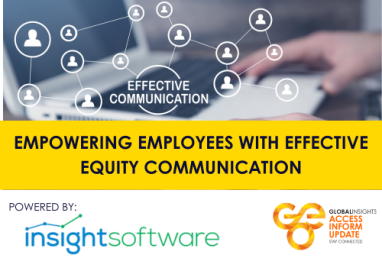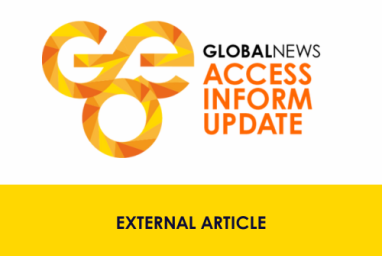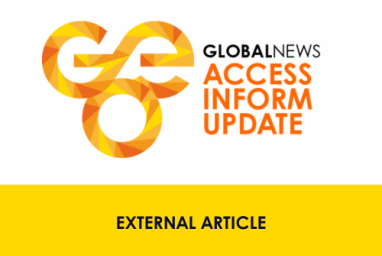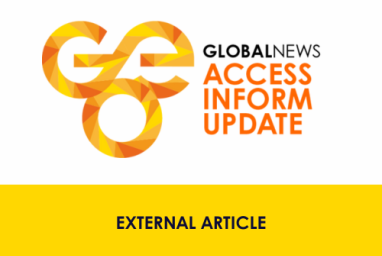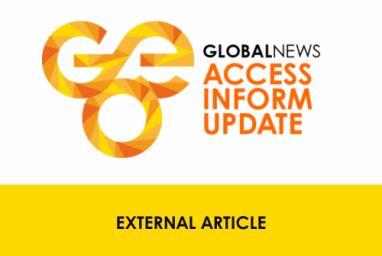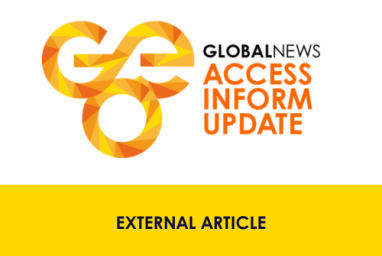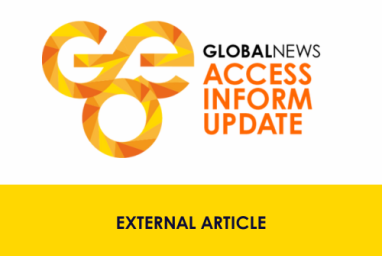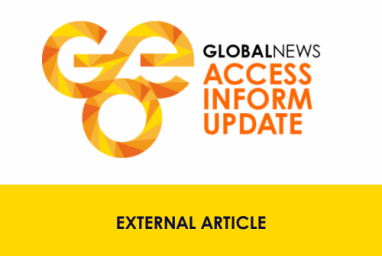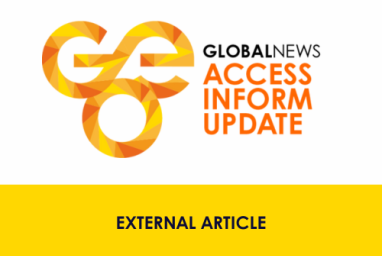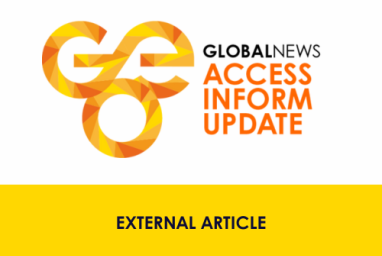Effective communication is essential to the success of equity compensation programs. To maximize employee understanding and engagement, companies need to offer clear, accessible, and consistent messaging. During a recent webcast, experts Dina Thiessen and Bonnie Grassman from insightsoftware, along with Katie Griffis from Nelnet[KS1] , shared valuable strategies for enhancing communication efforts through technology, data insights, and proven engagement tactics.
Clarity in messaging
To communicate the value of equity compensation, it’s crucial to keep messaging clear and tailored to employees’ needs. Simplifying complex concepts helps employees understand not just the mechanics of equity plans, but how they fit into their overall compensation.
- Simplify language: Use plain language to explain equity plans and avoid overwhelming employees with jargon. Visual aids, such as infographics and short videos, can be useful tools to simplify information.
Comprehensive employee education
Educating employees about their equity compensation is key to increasing engagement. From stock options to RSUs, employees need clear explanations of award types, vesting schedules, and tax implications. Educated employees are more likely to value and participate in equity programs.
- Offer live sessions: Webinars and Q&A sessions allow employees to ask questions and gain in-depth knowledge about their equity plans.
Leveraging technology for clearer communication
Adopting technology platforms, such as Certent Equity Management from insightsoftware, can significantly improve communication by providing employees with centralized, real-time access to their equity details. Certent simplifies equity plan management, offering transparency and reducing administrative burdens.
- Streamline processes: By transitioning from manual processes to automated systems, Certent allows HR teams to focus on high-priority tasks while employees gain self-service access to key information.
- Enhanced transparency: Certent’s platform provides robust tax reporting and compliance tools, ensuring employees understand the tax implications of their awards.
Katie noted that since adopting Certent, Nelnet has seen a reduction in employee questions because the information is readily available, reducing confusion and empowering employees to make informed decisions.
Tailored communication for greater engagement
Personalized communication helps build trust and strengthens employee engagement with equity compensation programs. Tailoring messages based on factors such as tenure, role, and award type ensures that employees feel valued and that their specific needs are addressed.
- Segment employees: Use data analytics to target specific employee groups with relevant communications about equity compensation.
- Consistency across teams: HR, finance, and legal departments should collaborate to ensure messaging is consistent and accurate.
- Leadership involvement: Having executives share personal stories or experiences can build trust and demonstrate the company’s commitment to equity compensation.
Dina emphasized the importance of personalization to foster deeper engagement and satisfaction, which leads to higher participation rates.
Ongoing communication and education
Communication about equity compensation should not be a one-time event. Continuous communication helps employees stay informed and engaged. Regular updates about key dates, plan changes, and new opportunities ensure employees understand the evolving value of their awards.
- Regular updates: Send frequent reminders about key events such as vesting or expiration dates.
- Use multiple channels: Ensure resources like FAQs, award summaries, and educational tools are easily accessible via internal portals and emails.
- Offer educational tools: Workshops and webinars help employees better understand equity compensation’s full value.
Bonnie recommended using feedback mechanisms, such as surveys, to gauge the effectiveness of communication efforts. Tracking participation and collecting feedback can help refine communication strategies.
Data-driven insights for strategy optimization
Using data analytics tools, such as those provided by Certent, allows companies to evaluate the effectiveness of their communication strategies. Certent’s reporting tools offer insights into trends and gaps in employee participation, enabling HR teams to adjust messaging and target under-engaged groups.
- Advanced reporting: Certent’s advanced reporting features track engagement, helping HR teams understand employee behavior and optimize communication strategies.
- Actionable insights: By identifying trends and gaps in participation, companies can adjust their communication efforts to target specific groups and improve overall engagement.
Enhancing the user experience
A seamless user experience increases the likelihood that employees will engage with their equity compensation plans. Certent’s mobile-friendly, user-centric interface allows employees to track their awards, stay informed about key dates, and make the most of their benefits.
- Promote self-service: Encourage employees to access their equity details via Certent’s platform, empowering them to manage their awards independently.
- Mobile accessibility: Certent’s platform is designed to be mobile-friendly, allowing employees to track their equity plans anytime, anywhere.
THE POWER OF EQUITY COMMUNICATION
To maximize the success of equity compensation programs, companies must focus on clear, personalized communication and leverage technology to ensure transparency and engagement.
Platforms like Certent Equity Management from insightsoftware simplify communication and help organizations track participation trends, enabling HR teams to make data-driven decisions. By prioritizing education, transparency, and a seamless user experience, companies can increase employee satisfaction and participation, ultimately fostering a more engaged and informed workforce.
For more information or to arrange a demo of Certent Equity Management, contact Dina or Bonnie directly.
Watch a recording of the webcast on GEOlearn: HERE
